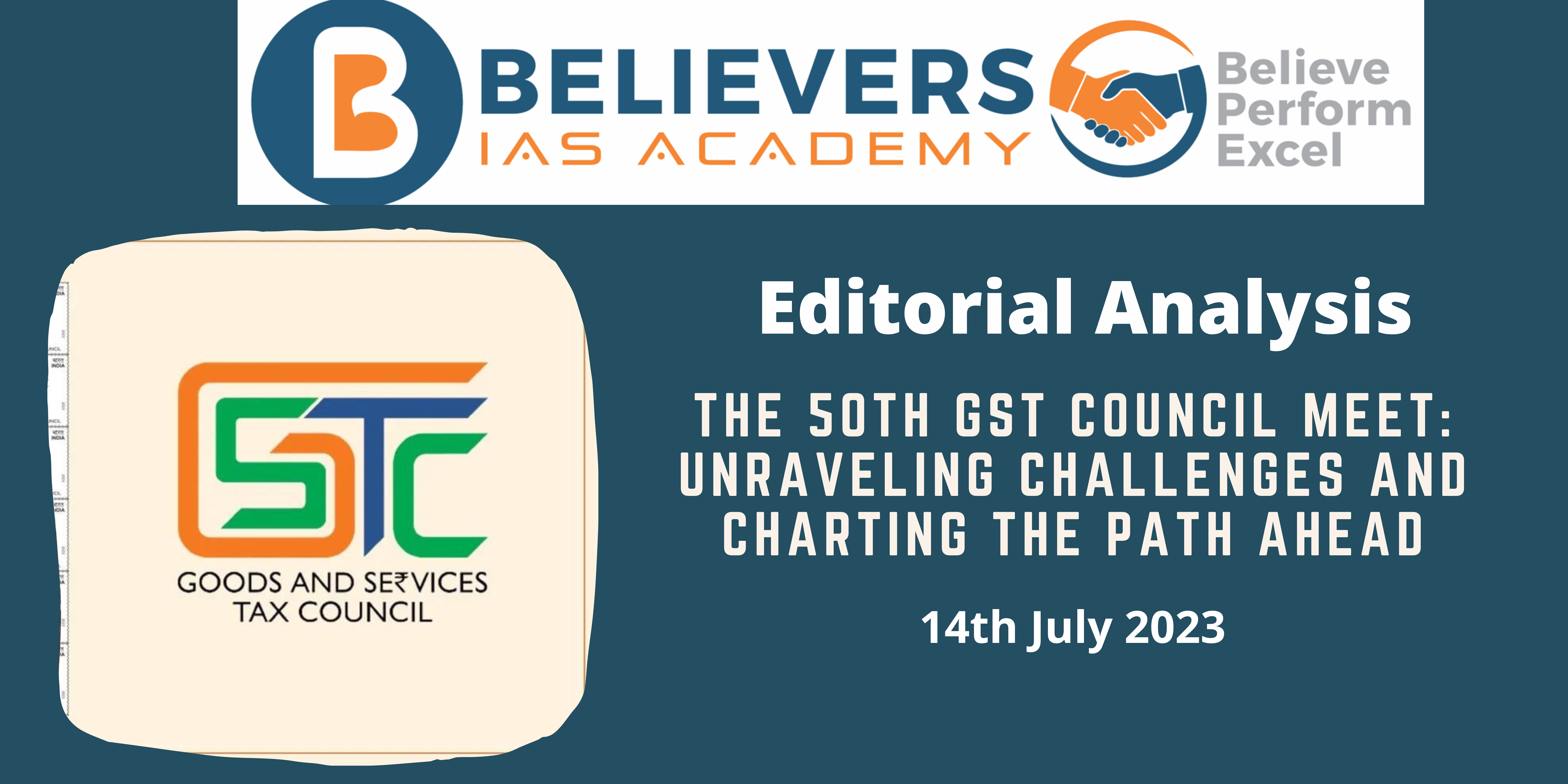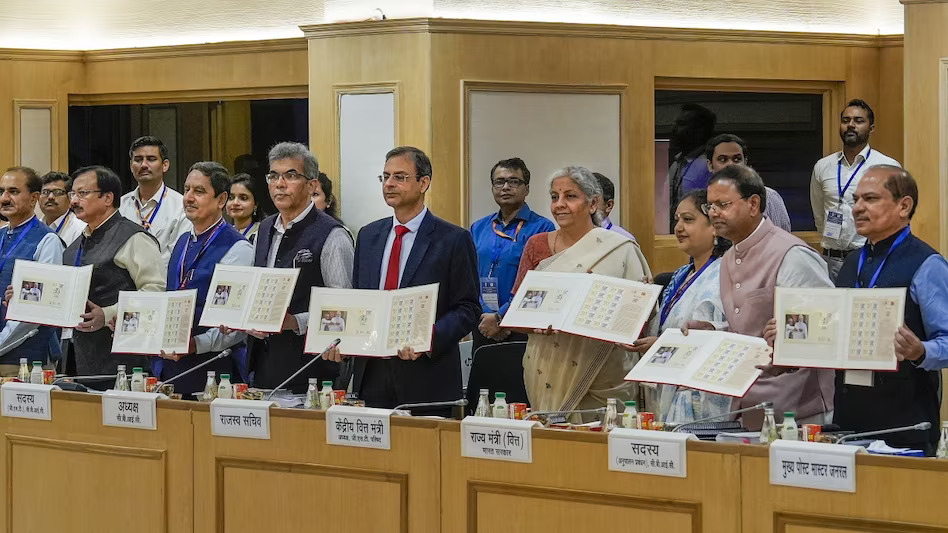The 50th GST Council Meet: Unraveling Challenges and Charting the Path Ahead
Context:
The recently concluded 50th GST Council meet has shed light on several unresolved issues that had been lingering for a considerable period. The meeting covered crucial aspects, including the establishment of Appellate Tribunals and tax regulations for the flourishing online gaming industry. While progress has been made, effective execution remains paramount to ensure the desired outcomes.
Relevance:
GS-02, GS-03 (Government Policies and intervention) (Constitutional Bodies) (GST)
Prelims:
- GST council
- One nation One tax
Mains Question:
- Critically analyze the outcomes of the 50th GST Council meet in terms of its impact on the taxation framework, regulatory mechanisms, and the online gaming industry. Discuss the challenges and opportunities associated with the decisions made, and suggest measures to further streamline the GST regime.
Dimensions of the Article:
- Resolution of Long-Pending Issues
- Tax Treatment of Online Gaming Industry
- Streamlining Tax Rates and Exemptions
- Implications and the Need for Further Reforms
Resolution of Long-Pending Issues:
- The clearance of appointment norms for tribunal members, paving the way for the operationalization of tribunals within the next four to six months.
- To ensure accessibility, tribunal benches will be established gradually, beginning with State capitals and cities housing High Court benches.
- This development is expected to expedite the resolution of mounting GST litigations, reducing the burden on the judicial system.
Tax Treatment of Online Gaming Industry:
- The Council’s decision to finalize a 28% GST levy on the face value of all bets placed in online games, casinos, or horse-racing has raised concerns within the gaming industry.
- Many e-gaming players perceive this decision as a severe setback, posing a threat to the industry’s growth and the livelihoods it supports.
- Finance Minister Nirmala Sitharaman acknowledged the economic significance of the casino-driven tourism revenue in Goa and Sikkim. However, the Council also deliberated on the ethical implications of providing preferential tax treatment to non-essential services.
- Given the ongoing policy formulation by the Electronics and IT Ministry on online gaming, this decision may necessitate further review and refinement to strike an appropriate balance.
Streamlining Tax Rates and Exemptions:
- The Council has taken commendable steps towards streamlining tax rates and clarifying exemptions. It has reduced or clarified rates for various items, including food and beverages in cinema halls, unfried and uncooked snack pellets, fish soluble paste, and imitation zari yarn, which will now attract a lower 5% GST.
- These amendments rectify past inconsistencies and provide greater clarity in the tax payment process.
- Prioritizing exemptions for drugs imported for cancer and rare diseases and imposing higher tax levies on sport utility vehicles could have been envisioned earlier.
- It is also crucial to discourage the use of larger personal vehicles, especially in a country grappling with severe traffic congestion.
Implications and the Need for Further Reforms:
- The impact of these decisions on individual sectors will depend on the fine print of the revised regulations. However, it is concerning that the Council has shifted its focus away from the promised overhaul of GST rates.
- The absence of a successor to lead the ministerial group on rate restructuring raises questions about the continuity of this critical initiative. As the nation enters an upcoming poll season, it is imperative for the Council to maintain its commitment to comprehensive rate reforms while addressing sector-specific concerns.
Way Forward:
- Engage Stakeholders: The Council should proactively engage with industry experts, economists, and representatives from affected sectors to solicit feedback, identify challenges, and explore collaborative solutions.
- Continual Review: Regular review of the decisions and their impact on various sectors is essential to assess their efficacy and make timely adjustments, if necessary.
- Strengthening Appellate Tribunals: The expedited establishment of tribunals should be accompanied by ensuring adequate infrastructure, skilled personnel, and an efficient dispute resolution mechanism to address the mounting GST litigations.
- Policy Refinement for Online Gaming: Given the evolving nature of the online gaming industry, a comprehensive policy framework should be formulated in collaboration with industry stakeholders, considering the economic significance, job creation potential, and ethical considerations.
Conclusion:
The 50th GST Council meet has provided much-needed clarity on long-standing issues while introducing new challenges. Effective execution of the decisions, along with continuous review and refinement, will be instrumental in realizing the desired outcomes. Striking a balance between regulatory imperatives, economic growth, and ethical considerations remains a critical task. As the GST regime progresses, sustained efforts should be made to streamline rates, promote ease of doing business, and foster a robust and inclusive taxation framework that serves the interests of all stakeholders.



